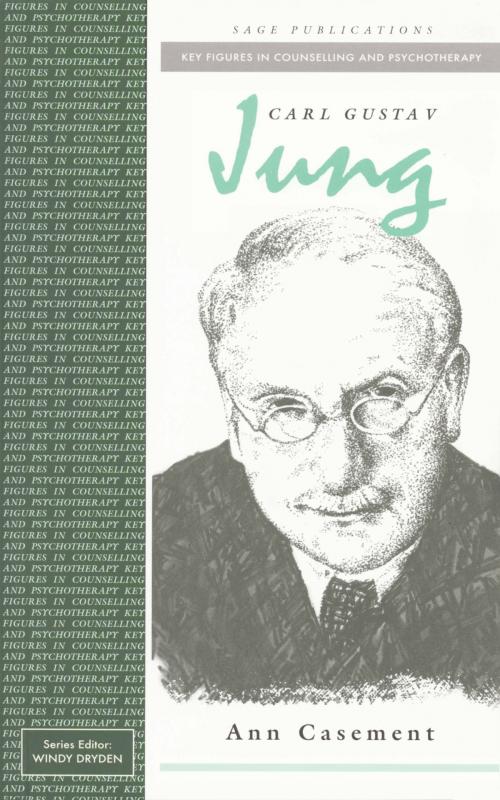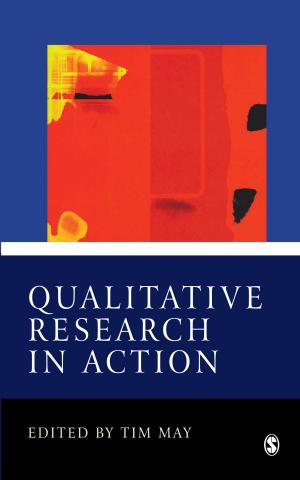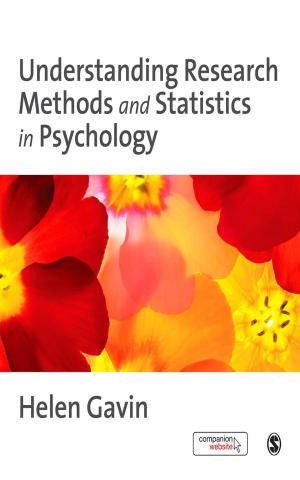Carl Gustav Jung
Nonfiction, Social & Cultural Studies, Social Science, Human Services, Health & Well Being, Psychology| Author: | Ms Ann Casement | ISBN: | 9781446224113 |
| Publisher: | SAGE Publications | Publication: | May 3, 2001 |
| Imprint: | SAGE Publications Ltd | Language: | English |
| Author: | Ms Ann Casement |
| ISBN: | 9781446224113 |
| Publisher: | SAGE Publications |
| Publication: | May 3, 2001 |
| Imprint: | SAGE Publications Ltd |
| Language: | English |
`This book offers a fresh and full introduction to Jung's psychology - it will be appreciated by many, from novice counsellors to the well-read analyst who will find... that there is much to learn about C G Jung' - Journal of Analytical Psychology
`Ann Casement achieves an almost impossible task in her contribution to this useful series from SAGE, namely to create a lively overview of a complex man and his equally complex contributuions to analytic psychotherapy.... Casement achieves in this short book what Jung may have hoped to do when he reported a dream following a meeting with a publisher who was encouraging him to write a popular text of his ideas for the non-specialist. He had rejected the idea out of hand, but later he had a dream that changed his mind. "Jung found himself `standing in a public place addressing a great multitude of people who were listening to him with rapt attention and understanding what he said'" ' - Self & Society
`Clearly written and well-informed, this impressive book is likely to become the single volume of choice for those psychotherapists and counsellors engaging with Jung and Jungian psychology as part of their training (whether wholly Jungian or more pluralistic). Ann Casement writes as an informed and enthusiastic insider who has also managed to retain her critical distance - hence what she has to say will also be relevant to more experienced readers' - Andrew Samuels, University of Essex
Carl Gustav Jung is an enlightening and insightful guide to the life and work of one of the founding fathers of psychotherapy and most influential thinkers in modern times.
Combining insights from his early life and his wide-ranging intellectual interests in philosophy, mysticism and parapsychology, Ann Casement traces the development of Jung's ideas on the functioning of the human mind, including the origins of core Jungian concepts such as archetypes, teleology, alchemy and the collective unconscious. Examining the relationship between Freud and Jung through their prolific correspondence, the author charts the growing divergence of opinion, which culminated in the birth of analytical psychology, the branch of psychotherapy established by Jung.
Notwithstanding his unquestionable contribution to modern intellectual thought, Jung has been subject to severe criticism, including allegations of anti-Semitism and sympathy with the Nazi party. The book sets out clearly both the arguments levelled against Jung and responses to his critics.
Particularly for the reader new to Jungian thinking, this book places the central concepts fully into context and provides the ideal starting point for further study of Jung and his work.
Ann Casement is a Jungian Analyst in Private Practice, London and Chair of the United Kingdom Council for Psychotherapy. Her previous publications include Post-Jungians Today.
`This book offers a fresh and full introduction to Jung's psychology - it will be appreciated by many, from novice counsellors to the well-read analyst who will find... that there is much to learn about C G Jung' - Journal of Analytical Psychology
`Ann Casement achieves an almost impossible task in her contribution to this useful series from SAGE, namely to create a lively overview of a complex man and his equally complex contributuions to analytic psychotherapy.... Casement achieves in this short book what Jung may have hoped to do when he reported a dream following a meeting with a publisher who was encouraging him to write a popular text of his ideas for the non-specialist. He had rejected the idea out of hand, but later he had a dream that changed his mind. "Jung found himself `standing in a public place addressing a great multitude of people who were listening to him with rapt attention and understanding what he said'" ' - Self & Society
`Clearly written and well-informed, this impressive book is likely to become the single volume of choice for those psychotherapists and counsellors engaging with Jung and Jungian psychology as part of their training (whether wholly Jungian or more pluralistic). Ann Casement writes as an informed and enthusiastic insider who has also managed to retain her critical distance - hence what she has to say will also be relevant to more experienced readers' - Andrew Samuels, University of Essex
Carl Gustav Jung is an enlightening and insightful guide to the life and work of one of the founding fathers of psychotherapy and most influential thinkers in modern times.
Combining insights from his early life and his wide-ranging intellectual interests in philosophy, mysticism and parapsychology, Ann Casement traces the development of Jung's ideas on the functioning of the human mind, including the origins of core Jungian concepts such as archetypes, teleology, alchemy and the collective unconscious. Examining the relationship between Freud and Jung through their prolific correspondence, the author charts the growing divergence of opinion, which culminated in the birth of analytical psychology, the branch of psychotherapy established by Jung.
Notwithstanding his unquestionable contribution to modern intellectual thought, Jung has been subject to severe criticism, including allegations of anti-Semitism and sympathy with the Nazi party. The book sets out clearly both the arguments levelled against Jung and responses to his critics.
Particularly for the reader new to Jungian thinking, this book places the central concepts fully into context and provides the ideal starting point for further study of Jung and his work.
Ann Casement is a Jungian Analyst in Private Practice, London and Chair of the United Kingdom Council for Psychotherapy. Her previous publications include Post-Jungians Today.















